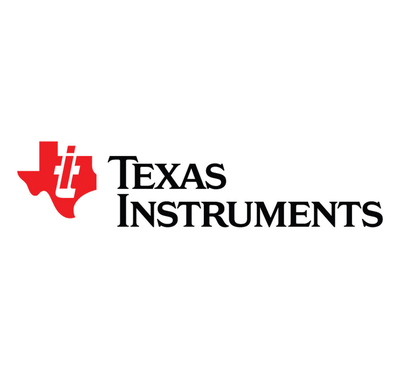TI enables automakers to advance vehicle autonomy and safety with new chips in its automotive portfolio
Texas Instruments (TI) has unveiled new automotive chips to enhance vehicle autonomy and safety. The company introduced the LMH13000, the industry's first integrated high-speed lidar laser driver, delivering 800ps rise time and achieving 30% longer distance measurements than discrete solutions. The driver provides up to 5A adjustable output current with only 2% variation across temperature ranges.
TI also launched the industry's first automotive BAW-based clocks (CDC6C-Q1 oscillator and LMK3H0102-Q1 and LMK3C0105-Q1 clock generators) that increase reliability by 100 times compared to traditional quartz-based clocks. Additionally, the new AWR2944P mmWave radar sensor features improved signal-to-noise ratio, increased computational capabilities, larger memory capacity, and an integrated radar hardware accelerator for AI applications.
Texas Instruments (TI) ha presentato nuovi chip per il settore automobilistico volti a migliorare l'autonomia e la sicurezza dei veicoli. L'azienda ha introdotto il LMH13000, il primo driver laser lidar ad alta velocità integrato nel settore, che offre un tempo di salita di 800ps e consente misurazioni a distanze del 30% maggiori rispetto alle soluzioni discrete. Il driver fornisce una corrente di uscita regolabile fino a 5A con una variazione di soli il 2% su diverse temperature.
TI ha inoltre lanciato i primi orologi automotive basati su tecnologia BAW (oscillatore CDC6C-Q1 e generatori di clock LMK3H0102-Q1 e LMK3C0105-Q1) che aumentano l'affidabilità di 100 volte rispetto agli orologi tradizionali a quarzo. Inoltre, il nuovo sensore radar mmWave AWR2944P presenta un miglior rapporto segnale-rumore, capacità di calcolo potenziate, maggiore memoria e un acceleratore hardware radar integrato per applicazioni di intelligenza artificiale.
Texas Instruments (TI) ha presentado nuevos chips automotrices para mejorar la autonomía y seguridad de los vehículos. La compañía introdujo el LMH13000, el primer controlador láser lidar integrado de alta velocidad en la industria, que ofrece un tiempo de subida de 800ps y logra mediciones a distancias un 30% mayores que las soluciones discretas. El controlador proporciona una corriente de salida ajustable de hasta 5A con solo un 2% de variación en un rango de temperaturas.
TI también lanzó los primeros relojes automotrices basados en BAW (oscilador CDC6C-Q1 y generadores de reloj LMK3H0102-Q1 y LMK3C0105-Q1) que aumentan la fiabilidad 100 veces en comparación con los relojes tradicionales de cuarzo. Además, el nuevo sensor radar mmWave AWR2944P ofrece una mejor relación señal-ruido, mayor capacidad de cálculo, más memoria y un acelerador de hardware radar integrado para aplicaciones de IA.
Texas Instruments (TI)는 차량 자율성과 안전성을 향상시키기 위한 새로운 자동차용 칩을 공개했습니다. 회사는 업계 최초의 통합 고속 라이다 레이저 드라이버인 LMH13000을 선보였으며, 800ps 상승 시간을 제공하고 개별 솔루션보다 30% 더 긴 거리 측정을 달성합니다. 이 드라이버는 온도 범위 전반에 걸쳐 2%의 변동만으로 최대 5A의 조절 가능한 출력 전류를 제공합니다.
TI는 또한 기존 쿼츠 기반 클럭 대비 신뢰성을 100배 향상시킨 업계 최초의 자동차용 BAW 기반 클럭(CDC6C-Q1 오실레이터 및 LMK3H0102-Q1, LMK3C0105-Q1 클럭 제너레이터)을 출시했습니다. 추가로, 새로운 AWR2944P mmWave 레이더 센서는 향상된 신호대잡음비, 증가된 연산 능력, 더 큰 메모리 용량, AI 애플리케이션용 통합 레이더 하드웨어 가속기를 특징으로 합니다.
Texas Instruments (TI) a dévoilé de nouveaux puces automobiles pour améliorer l'autonomie et la sécurité des véhicules. La société a présenté le LMH13000, le premier pilote laser lidar haute vitesse intégré de l'industrie, offrant un temps de montée de 800ps et permettant des mesures à 30 % plus longue distance que les solutions discrètes. Le pilote fournit un courant de sortie ajustable jusqu'à 5A avec seulement 2 % de variation sur les plages de température.
TI a également lancé les premières horloges automobiles basées sur la technologie BAW (oscillateur CDC6C-Q1 et générateurs d'horloge LMK3H0102-Q1 et LMK3C0105-Q1) qui augmentent la fiabilité de 100 fois par rapport aux horloges traditionnelles à quartz. De plus, le nouveau capteur radar mmWave AWR2944P offre un meilleur rapport signal/bruit, des capacités de calcul accrues, une plus grande capacité mémoire et un accélérateur matériel radar intégré pour les applications d'IA.
Texas Instruments (TI) hat neue Automotive-Chips vorgestellt, um die Fahrzeugautonomie und Sicherheit zu verbessern. Das Unternehmen präsentierte den LMH13000, den ersten integrierten Hochgeschwindigkeits-Lidar-Lasertreiber der Branche, der eine Anstiegszeit von 800ps bietet und 30 % längere Distanzmessungen als diskrete Lösungen ermöglicht. Der Treiber liefert einen bis zu 5A einstellbaren Ausgangsstrom mit nur 2 % Variation über Temperaturbereiche.
TI brachte außerdem die ersten automotive BAW-basierten Uhren (CDC6C-Q1 Oszillator sowie LMK3H0102-Q1 und LMK3C0105-Q1 Clock-Generatoren) auf den Markt, die die Zuverlässigkeit im Vergleich zu herkömmlichen Quarzuhrwerken um das 100-fache erhöhen. Zusätzlich verfügt der neue AWR2944P mmWave-Radarsensor über ein verbessertes Signal-Rausch-Verhältnis, erhöhte Rechenleistung, größeren Speicher und einen integrierten Radar-Hardware-Beschleuniger für KI-Anwendungen.
- New LMH13000 reduces system costs by 30% while improving distance measurements
- BAW-based clocks increase reliability by 100x compared to traditional solutions
- Integration of AI capabilities in radar sensor enhances processing capabilities
- Solution size reduced by 4x enabling wider implementation across vehicle models
- Automotive-qualified version of LMH13000 won't be available until 2026
- Currently only preproduction quantities available for all new chips
Insights
Texas Instruments' new automotive chip portfolio represents a significant strategic expansion in the high-growth ADAS market. The integrated LMH13000 lidar driver delivers
The introduction of BAW-based clocks with 100x improved reliability tackles a critical weakness in automotive electronics: maintaining performance integrity in harsh environments. Meanwhile, the enhanced AWR2944P radar sensor completes a comprehensive sensor suite offering for autonomous vehicle applications.
What makes this announcement particularly meaningful is TI's focus on component integration and miniaturization, enabling automakers to incorporate advanced safety features in mainstream vehicles rather than just premium models. The preproduction availability suggests TI is positioning to capture design wins now, though full revenue impact will materialize gradually as these components enter mass production.
This product suite aligns perfectly with TI's strategic emphasis on analog and embedded processing for automotive applications – high-margin segments where the company maintains competitive advantages in manufacturing scale and design expertise. By solving specific technical challenges in autonomous vehicle development, TI is strengthening its position in a market segment expected to outpace overall semiconductor industry growth.
For more information, see ti.com/LMH13000, ti.com/CDC6C-Q1, ti.com/LMK3H0102-Q1, ti.com/LMK3C0105-Q1 and ti.com/AWR2944P.
"Our latest automotive analog and embedded processing products help automakers both meet current safety standards and accelerate toward a collision-free future," said Andreas Schaefer, TI general manager, ADAS and Infotainment. "Semiconductor innovation delivers the reliability, precision, integration and affordability automakers need to increase vehicle autonomy across their entire fleet."
Real-time decision-making with
A crucial technology for the future of safe autonomous vehicles, lidar provides a detailed 3D map of the driver's surroundings. This enables vehicles to accurately detect and quickly react to obstacles, traffic and road conditions to improve real-time decision-making. TI's new LMH13000 is the industry's first integrated high-speed laser driver to deliver an ultra-fast 800ps rise time, achieving up to
As lidar technology reaches higher output currents, vast variations in pulse duration over temperature make it challenging to meet eye safety standards. TI's LMH13000 laser driver provides up to 5A of adjustable output current with only
To learn more, read the technical article, "Lidar leaps forward: Enabling safer vehicles with precise, long-range detection."
Design a reliable ADAS with the industry's first automotive BAW-based clocks
Electronics in ADAS and in-vehicle infotainment systems must work reliably while facing temperature fluctuations, vibrations and electromagnetic interference. With TI's BAW technology benefits, the new CDC6C-Q1 oscillator and LMK3H0102-Q1 and LMK3C0105-Q1 clock generators increase reliability by 100 times compared to traditional quartz-based clocks, with a failure-in-time rate of 0.3. Enhanced clocking precision and resilience in harsh conditions enable safer operation, cleaner data communication, and higher-speed data processing across next-generation vehicle subsystems.
To learn more, read the technical article, "Beyond quartz: How BAW clocks are redefining ADAS and IVI."
Additionally, the company unveiled a new front and corner radar sensor, the AWR2944P, building on TI's widely adopted AWR2944 platform. The new radar sensor's enhancements improve vehicle safety by extending detection range, improving angular accuracy, and enabling more sophisticated processing algorithms. Key enhancements include:
- An improved signal-to-noise ratio.
- Increased computational capabilities.
- A larger memory capacity.
- An integrated radar hardware accelerator that allows the microcontroller and digital signal processor to execute machine learning for edge artificial intelligence applications.
TI's new automotive lidar, clock and radar solutions build on the company's commitment to helping engineers design adaptable ADAS for a safer, more automated driving experience. To learn more, see TI.com/adas.
Package, availability and pricing
Preproduction quantities of the LMH13000, CDC6C-Q1, LMK3H0102-Q1, LMK3C0105-Q1 and AWR2944P are available for purchase now on TI.com. Other output current options and an automotive-qualified version of the LMH13000 are expected to be available in 2026. Supporting resources for the news devices include:
- Multiple payment and shipping options.
- Evaluation modules.
About Texas Instruments
Texas Instruments Incorporated (Nasdaq: TXN) is a global semiconductor company that designs, manufactures and sells analog and embedded processing chips for markets such as industrial, automotive, personal electronics, enterprise systems and communications equipment. At our core, we have a passion to create a better world by making electronics more affordable through semiconductors. This passion is alive today as each generation of innovation builds upon the last to make our technology more reliable, more affordable and lower power, making it possible for semiconductors to go into electronics everywhere. Learn more at TI.com.
![]() View original content to download multimedia:https://www.prnewswire.com/news-releases/ti-enables-automakers-to-advance-vehicle-autonomy-and-safety-with-new-chips-in-its-automotive-portfolio-302428135.html
View original content to download multimedia:https://www.prnewswire.com/news-releases/ti-enables-automakers-to-advance-vehicle-autonomy-and-safety-with-new-chips-in-its-automotive-portfolio-302428135.html
SOURCE Texas Instruments








